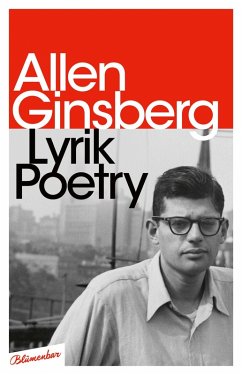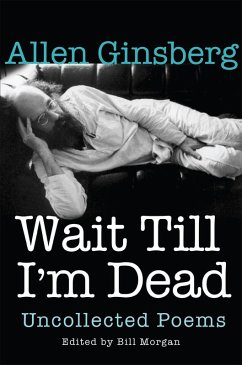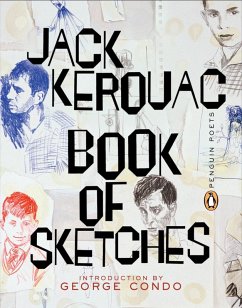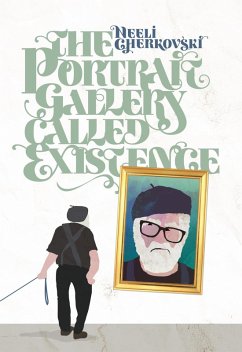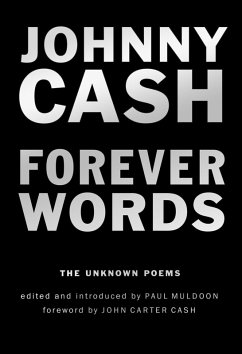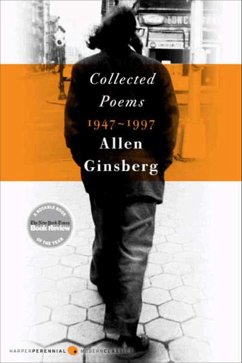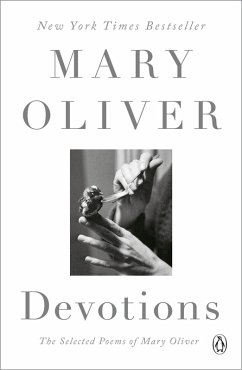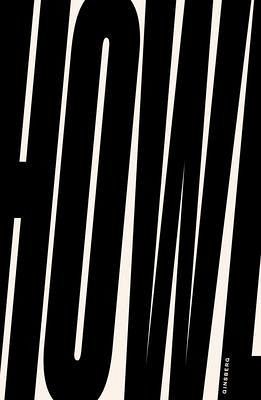
Howl and Other Poems (eBook, ePUB)
Versandkostenfrei!
Sofort per Download lieferbar
5,99 €
inkl. MwSt.
Weitere Ausgaben:

PAYBACK Punkte
3 °P sammeln!
'Ginsberg could terrify the authorities ... a literary pioneer' - The New York TimesBeat movement icon and visionary poet, Allen Ginsberg broke boundaries with his fearless, pyrotechnic verse. The apocalyptic 'Howl' became the subject of an obscenity trial when it was first published in 1956 - its vindication was a watershed moment in twentieth-century history. Dark, ecstatic and rhapsodic, 'Howl' shows why Ginsberg was one of the most influential poets of the twentieth century.Howl and Other Poems is a collection of Ginsberg's finest work, including 'Howl', one of the principal works of the B...
'Ginsberg could terrify the authorities ... a literary pioneer' - The New York Times
Beat movement icon and visionary poet, Allen Ginsberg broke boundaries with his fearless, pyrotechnic verse. The apocalyptic 'Howl' became the subject of an obscenity trial when it was first published in 1956 - its vindication was a watershed moment in twentieth-century history. Dark, ecstatic and rhapsodic, 'Howl' shows why Ginsberg was one of the most influential poets of the twentieth century.
Howl and Other Poems is a collection of Ginsberg's finest work, including 'Howl', one of the principal works of the Beat Generation as well as 'A Supermarket in California', 'Transcription of Organ Music', 'Sunflower Sutra', 'America', 'In the Baggage Room at Greyhound"', and some of his earlier works.
"Ginsberg is both tragic and dynamic, a lyrical genius ... probably the single greatest influence on American poetical voice since Whitman." - Bob Dylan
'Allen is ever-present in his words. His words are him - they're like a living embodiment of him - they have his energy, his philosophy, his playfulness, his sexuality and his compassion. Not only did he give us love and poetry, he reminded us of our civic duty to use our voice.' - Patti Smith
About the Author
Allen Ginsberg was born in Newark, New Jersey in 1926, the son of Naomi Ginsberg and the well-known lyric poet/teacher Louis Ginsberg. As a Columbia College student in the 1940s he began close friendships with William S. Burroughs, Neal Cassady, Gregory Corso and Jack Kerouac. He became associated with the Beat movement and the 1950s San Francisco Renaissance poets Gary Snyder and Michael McClure. After jobs as a labourer, market researcher and sailor, Ginsberg published his first volume, Howl and Other Poems, in 1956.
Howl overcame censorship trials to become one of the most widely read poems of the century, translated into twenty-eight languages. In 1965 Ginsberg was, in a matter of weeks, crowned Prague May King, expelled by the Czech police and placed on the FBI's Dangerous Security list. Though he travelled widely, teaching in India, China, and Western and Eastern Europe, his home for most of his life was New York's Lower East Side.
A member of the American Academy of Arts and Letters, Allen Ginsberg was awarded the medal of Chevalier de l'Ordre des Arts et Lettres by the French Minister of Culture in 1993, honoured as Harvard Phi Beta Kappa Poet 1994 and co-founded the Jack Kerouac School of Disembodied Poetics at the Naropa Institute, the first accredited Buddhist college in the western world.
Ginsberg died in New York on 5 April 1997, eight days after being diagnosed seriously ill. He continued to write until the last few days of his life and died surrounded by his friends and family. One of the last of the 'Beats', he embodied the surprising, experimental and sometimes lunatic spirit of the artistic and literary scene he was so much a part of. On his death James Campbell wrote of him in the Guardian, 'Allen Ginsberg was the exemplary avant-garde figure of the post-war world. In verse, in politics, in his own intimate life - there was no room for a 'private life' - Ginsberg resisted and disdained the orthodox, the social lie. Few people have done as much to make non-conformism respectable in our time as he did.'
Beat movement icon and visionary poet, Allen Ginsberg broke boundaries with his fearless, pyrotechnic verse. The apocalyptic 'Howl' became the subject of an obscenity trial when it was first published in 1956 - its vindication was a watershed moment in twentieth-century history. Dark, ecstatic and rhapsodic, 'Howl' shows why Ginsberg was one of the most influential poets of the twentieth century.
Howl and Other Poems is a collection of Ginsberg's finest work, including 'Howl', one of the principal works of the Beat Generation as well as 'A Supermarket in California', 'Transcription of Organ Music', 'Sunflower Sutra', 'America', 'In the Baggage Room at Greyhound"', and some of his earlier works.
"Ginsberg is both tragic and dynamic, a lyrical genius ... probably the single greatest influence on American poetical voice since Whitman." - Bob Dylan
'Allen is ever-present in his words. His words are him - they're like a living embodiment of him - they have his energy, his philosophy, his playfulness, his sexuality and his compassion. Not only did he give us love and poetry, he reminded us of our civic duty to use our voice.' - Patti Smith
About the Author
Allen Ginsberg was born in Newark, New Jersey in 1926, the son of Naomi Ginsberg and the well-known lyric poet/teacher Louis Ginsberg. As a Columbia College student in the 1940s he began close friendships with William S. Burroughs, Neal Cassady, Gregory Corso and Jack Kerouac. He became associated with the Beat movement and the 1950s San Francisco Renaissance poets Gary Snyder and Michael McClure. After jobs as a labourer, market researcher and sailor, Ginsberg published his first volume, Howl and Other Poems, in 1956.
Howl overcame censorship trials to become one of the most widely read poems of the century, translated into twenty-eight languages. In 1965 Ginsberg was, in a matter of weeks, crowned Prague May King, expelled by the Czech police and placed on the FBI's Dangerous Security list. Though he travelled widely, teaching in India, China, and Western and Eastern Europe, his home for most of his life was New York's Lower East Side.
A member of the American Academy of Arts and Letters, Allen Ginsberg was awarded the medal of Chevalier de l'Ordre des Arts et Lettres by the French Minister of Culture in 1993, honoured as Harvard Phi Beta Kappa Poet 1994 and co-founded the Jack Kerouac School of Disembodied Poetics at the Naropa Institute, the first accredited Buddhist college in the western world.
Ginsberg died in New York on 5 April 1997, eight days after being diagnosed seriously ill. He continued to write until the last few days of his life and died surrounded by his friends and family. One of the last of the 'Beats', he embodied the surprising, experimental and sometimes lunatic spirit of the artistic and literary scene he was so much a part of. On his death James Campbell wrote of him in the Guardian, 'Allen Ginsberg was the exemplary avant-garde figure of the post-war world. In verse, in politics, in his own intimate life - there was no room for a 'private life' - Ginsberg resisted and disdained the orthodox, the social lie. Few people have done as much to make non-conformism respectable in our time as he did.'
Dieser Download kann aus rechtlichen Gründen nur mit Rechnungsadresse in A, D ausgeliefert werden.




